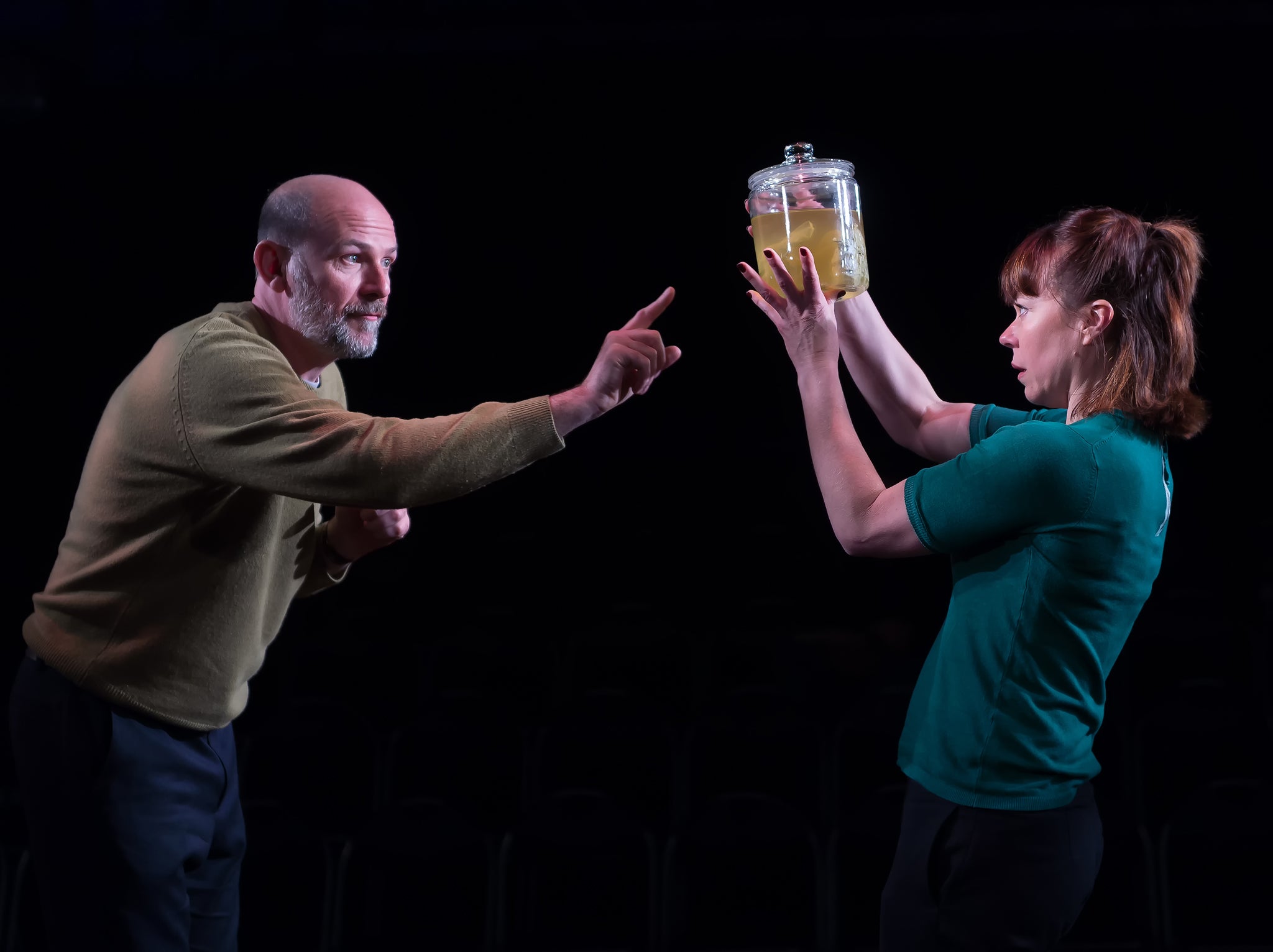Incognito, Bush Theatre, review: Nick Payne explores the brain in haunting new play

Your support helps us to tell the story
From reproductive rights to climate change to Big Tech, The Independent is on the ground when the story is developing. Whether it's investigating the financials of Elon Musk's pro-Trump PAC or producing our latest documentary, 'The A Word', which shines a light on the American women fighting for reproductive rights, we know how important it is to parse out the facts from the messaging.
At such a critical moment in US history, we need reporters on the ground. Your donation allows us to keep sending journalists to speak to both sides of the story.
The Independent is trusted by Americans across the entire political spectrum. And unlike many other quality news outlets, we choose not to lock Americans out of our reporting and analysis with paywalls. We believe quality journalism should be available to everyone, paid for by those who can afford it.
Your support makes all the difference.Nick Payne is not a dramatist who baulks at tackling big ideas. His award-winning Constellations took on quantum theory, astronomy, bee-keeping, and free will as it sent its metaphysical love story hopping around a multiverse of divergent outcomes.
Now, in Incognito, he explores the brain and the intimate connections between memory and the human sense of selfhood. As with the sudden snapshot shifts into alternative scenarios in the earlier work, the form of this canny, haunting new piece is metaphoric: a playful, funny-sad attempt to put theory into action.
One of the characters, a clinical neuropsychologist, proclaims that there is no central headquarters in our brains and therefore no fixed self. Instead, from the mass of incoming data, “the brain builds a narrative to steady us from moment to moment, but it is absolutely an illusion”.
It's a similar task that Payne sets the audience here, requiring it to make sense of several fast-moving, disparate, interwoven strands of narrative. In Joe Murphy's fiercely lucid and involving production, which premiered at High Tide theatre festival last month, the leaps feel synaptic in their instantaneousness.
On Oliver Townsend's spare design, with its brain-teaser-like metallic frame, the versatile cast of four – Paul Hickey, Amelia Lowdel, Alison O'Donnell and Sargon Yelda – play up to six characters each with no changes of costume but with precise split-second switches of accent and posture.
The stories intertwine those loosely based on fact and those which Payne has invented. One follows Thomas Stoltz Harvey the American pathologist who, in 1955, stole Einstein's brain convinced that experiments on it would uncover the mystery of his genius. He spent the rest of the century failing to substantiate that belief. Again, starting in the 1950s, there's the desperately moving case of Henry, a young man who, after pioneering brain surgery to ease his epilepsy, loses all ability to form new memories and exists in what has been described as a “permanent present tense”.
And, in contemporary times, there is Martha, a newly divorced bisexual neuropsychologist, who has embarked on relationship with another woman and whose understanding that “the brain is a storytelling machine and it's really, really good at fooling us” is pushing her to some rather bleak conclusions about why this conception of it could be “liberating”.
Martha is a lively character, challenging and abrasive, but I found that I couldn't quite believe in her and some of the fascinating issues she raises – for example, her neuroscientific scepticism as the legal notion of responsibility – are just left hanging in the air. For me, the most penetrating strand, emotionally and intellectually, was that involving Henry.
Payne has adapted the well-known real-life case of Henry Molaison, shifting it from Connecticut to Brighton and (crucially) giving the damaged young man a devoted young wife, who is agonised at watching her sweet-natured spouse on an endless loop of losing what has just happened to him like water through a sieve.
The polar opposite of this figure was Solomon Shereshevsky, the celebrated Russian mnemonist whose life was wrecked by his inability to forget anything. Peter Brook made a powerful theatre piece about the latter in Je suis un phenomene. Incognito stands honourably in that tradition.
Join our commenting forum
Join thought-provoking conversations, follow other Independent readers and see their replies
Comments